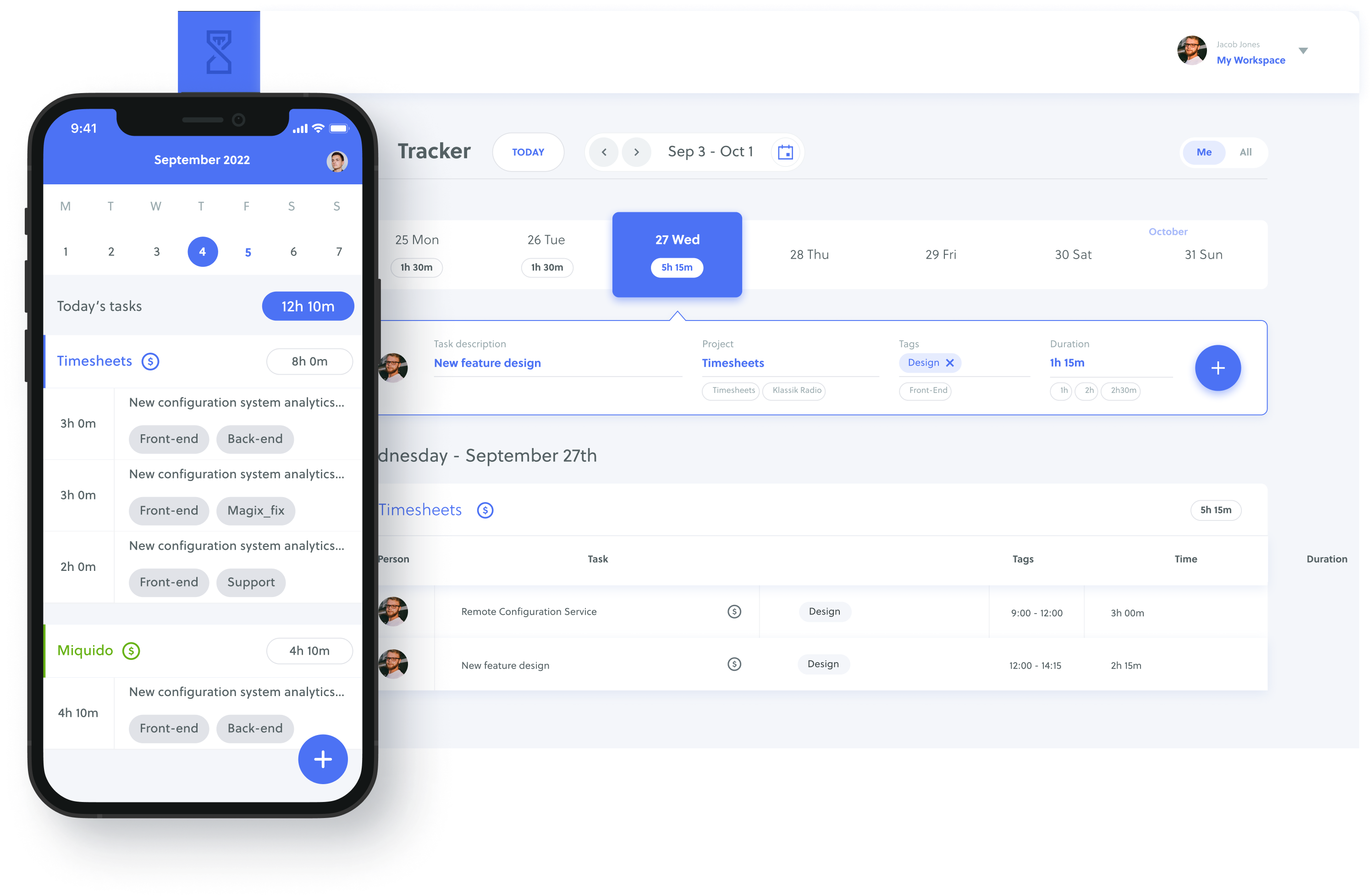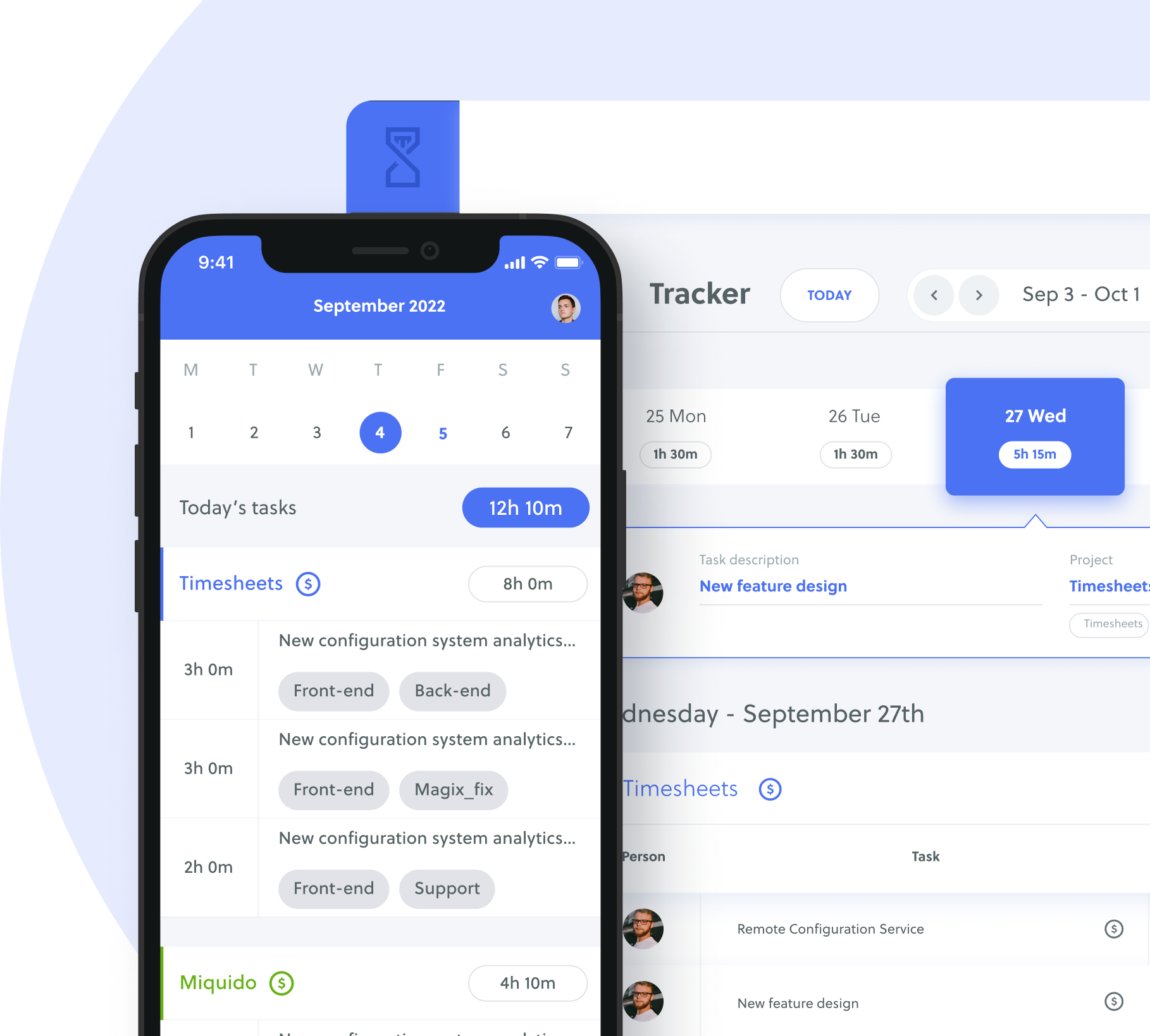Table of Contents
What is Time Tracking?
In short, time tracking is about making sure you know exactly how much time each of your team is spending on particular tasks. This valuable information can be used to optimise a project as you go along, or be used to decide a budget and team for a new project.
What you specifically decide to track will very much depend on the type of project you are running. One thing any successful company will agree on is that the benefits of time tracking cannot be underestimated. It can be the difference between success and failure. A surprising number of companies are too relaxed about this and often pay the price.

Why Should You Do It?
Regardless of who you are, there are multiple benefits to Time Tracking.
These include:
- Freeing up more time for important projects.
- Saving you or your company money.
- Allowing you to schedule guilt-free leisure time, since you know it is deserved.
- Gauging how much time you are wasting on unimportant tasks.
If you are managing a team of people, having them submit Time Tracking sheets will provide invaluable insight into how they are using the time given to them. You don’t want a member of your team committing large amounts of time to a low-paying client if it means a more profitable one is neglected. Answering emails and attending meetings can also get out of hand if not monitored closely.
Tracking what is ‘Billable’ or ‘Non Billable’ is a vital part of many industries, and no guesswork should ever be applied to such an important metric.
If you are a freelancer and are setting your own working schedule, tracking your time is even more important. With no one there to guide you or keep you on track, it is up to you to not fall into the trap of bad time management. Time tracking will give you a visual representation of your day, so you can spot any bad trends and eliminate them.
What Can We Learn From Time Tracking?
When planning out a work schedule, many people fall into the trap of ‘The Planning Fallacy’. This is a phenomenon where people tend to underestimate how much time a particular task might take. When this happens to too many tasks in a given day, the result is a sloppy, disorganised day where you achieve only a fraction of what was intended. 5pm has arrived and you have barely scraped through half of the tasks you designated for that day.
Time tracking sheets are an invaluable resource to look back on. Over time you can build up a lot of data so you can make a more educated prediction on how long a task or project will take to complete. Sure, there are certain tasks that might be harder to predict, but if you have a solid grasp on how much time to set aside for all those recurring tasks, you will have a bit more flexibility with the few that aren’t.
A Wake Up Call…
Procrastination is one of the biggest productivity killers out there, and we can all be guilty of it occasionally. The danger is when you lack the self-awareness to know exactly how much of your day is taken up falling down the youtube rabbit hole, or checking your social media.
In the blog WaitButWhy, Tim Urban discusses the internal battle happening between the part of our brain that wants to get things done, the rational decision maker, and the ‘Instant Gratification Monkey’ as he calls it, that just wants an easy time. This monkey lives inside all of us and can wreak havoc.
The problem is that we are often unaware of how much damage is being done, so we let it slide. Having a visual representation of where our time and energy is going can often serve as a scary wake up call that propels us into action.
Those seemingly harmless little breaks you take can add up to hours each week. Yes, it is important to get up and stretch, to make sure you are staying hydrated, and to let your eyes take a break from staring at screens. The problem comes when we make too many trips to the water cooler and get sidetracked by colleagues who are falling into the same trap. If you were to add up all the time then the 7- hour workday (excluding lunch) might end up being only 4 hours of actually doing work.
You don’t necessarily need to track the breaks, because if your work time tracking adds up to 5 hours, you then know you must have been procrastinating for 2. That’s 10 hours a week, and over 40 a month. Scary, right?
Displaying Your Worth To Your Team.
Effective time tracking can also provide a level of transparency within a team. When you are constantly measuring and optimising how you work, your value to your team will naturally increase.
Having solid productivity metrics to display not only gives you a feeling of satisfaction and confidence, but will also serve as motivation for the rest of your team to up their game. This in turn helps you too. Colleagues that are consistently lifting each other up will result in increased levels of job satisfaction and self-worth, along with the possibility of an increased salary.
There is less chance of workplace conflict if this level of transparency exists. No one can be accused of not pulling their weight if they have the data to prove otherwise
Using Time Tracking Data to Create a Budget.
Your time tracking efficiency will not only help you continually improve your current project, but also provide vital data for the next. A software company who time tracks every step of their first product, from concept to release, will then be able to refer to it when creating a budget for their second product. They will have a much better idea of how many people they will need on the team and what type of timeframe to expect than they had forest time round.
This takes a lot of guesswork out of the equation, so they don’t have to repeat any mistakes made forest time round.
Time Tracking to Improve Focus.
When you are tracking a task, you are much less likely to deviate from the path you have set yourself. The ticking clock is a constant reminder of what it is you are supposed to be working on, and can give you the motivation necessary to stick to it.
Multitasking isn’t always a bad thing if it is for tasks that don’t require much focus, but for important projects it can destroy your productivity. If you have set your timer to track a specific task you are probably not going to jump back and forth between it and another task. You will likely stay on track until it is completed.
How Can I Improve My Time Tracking Efficiency?
There are many different methods to track your time. Some people prefer using paper, such as a Bullet Journal, or a Grid-based system where each square represents a 10-15 minute chunk of time.
The drawback to this paper method is that it becomes very difficult to aggregate the results so you can look back later and learn from them. It is also time consuming to manually enter each individual block, and if mistakes are made, it is not so easy to change them.
We prefer the digital approach. Using a well designed tool can save you hours of work a week, and eliminate any inaccuracies that could exist with the ‘pen & paper’ approach
Some of the benefits include:
- An exact start/stop time, so over a long period of time the resulting data is extremely accurate.
- Organising time tracking into different categories, such as projects or billable/non billable.
- Mistakes can be quickly edited.
- Cross-platform access means you can track anytime and anywhere.
- Exportable spreadsheets to submit to your team leader.
- Visual representations of data, such as bar charts.
So Is Time Tracking Effective?
In short, absolutely! If you are working on a goal, or just aiming to have a successful week at work, you need to know what the ingredients are to make that happen.
Imagine you are baking a cake. You know what the basic ingredients are, but you pay no attention to how much of each you are throwing into the mixing bowl. You absent-mindedly turn the oven temperature dial to a random number and place the cake inside.
You leave it in there until you feel like, or until you remember to take it out. What type of cake will you end up with? Likely a gooey mess, or burnt charcoal.
The same applies to how you spend your time. If you aren’t paying attention to the ingredients that make up your day, week, or month, how can it possibly be a success? Companies lose huge amounts of money each year due to bad time management.
A report from 2015 estimated that service sector companies in the U.S lost over $7 billion a day due to bad time tracking efficiency. But it doesn’t need to be that way. Effective time tracking is your weapon and armour against such losses, and your pathway to success.







